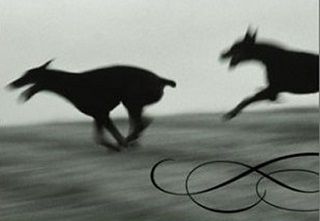Is Humankind "Wired" to Survive the Onslaught of Environmental Catastrophe?

We’d all like to believe that humankind is making progress, meaning, among other things, that an increasing percentage of our species is accorded what we would generally consider to be “basic human rights.” It’s easy to believe this is true, based on a few major aspects of our history.
Homo Sapiens is over 100,00 years old, but it was only 800 years ago that the Magna Carta was signed, only about 400 years ago that we underwent the Enlightenment, only about 200 years ago that we adopted the Bill of Rights as part of the U.S. Constitution, and only 50 years since the Civil Rights movement. It’s a piece of cake to write off the Spanish Inquisition, the Nazis and the present-day Muslim fundamentalists as blips on what would otherwise be a path that is climbing steadily upward.
I say “we like to believe,” but what I really mean is “we need to believe.”
What would it imply if this whole premise is incorrect? What if human beings have an innately dark nature that will always appear somehow, somewhere, in some form or another?
British author Ian McEwan asserts this in his brilliant novel Black Dogs, where one of the lead characters realizes at the end that the sinister side of human emotion can never be replaced by kindness and rationality:
(There are) perverted spirits (that) no amount of social theory could account for. The evil I’m talking about lives in all of us. It takes hold in an individual, in private lives, within a family, and then it’s children that suffer most. And then, when the conditions are right, in different countries, at different times, a terrible cruelty, a viciousness against life erupts, and everyone is surprised by the depths of hatred within himself. Then it sinks back and waits.
This is a “yin-yang” of civility vs. depravity. We want to believe that our society is making progress, but McEwan is suggesting that this may not be the case; he’s saying that both decency and cruelty are innate parts of the human being. It’s an eternal contrast between science and superstition, nurturing and wickedness, the light of reason and the dramatization of hell-fire. This is interesting coming from McEwan, a thorough-going atheist with a profound understanding of biology and the other sciences. But that’s what makes him one of the most powerful intellectuals in the world today. He never stops thinking and exploring, and that’s the expectation he places upon his readers.
Be this as it may, what does it imply about humankind’s capacity to deal with what appears to be an oncoming avalanche of environmental catastrophes? It’s not encouraging….
